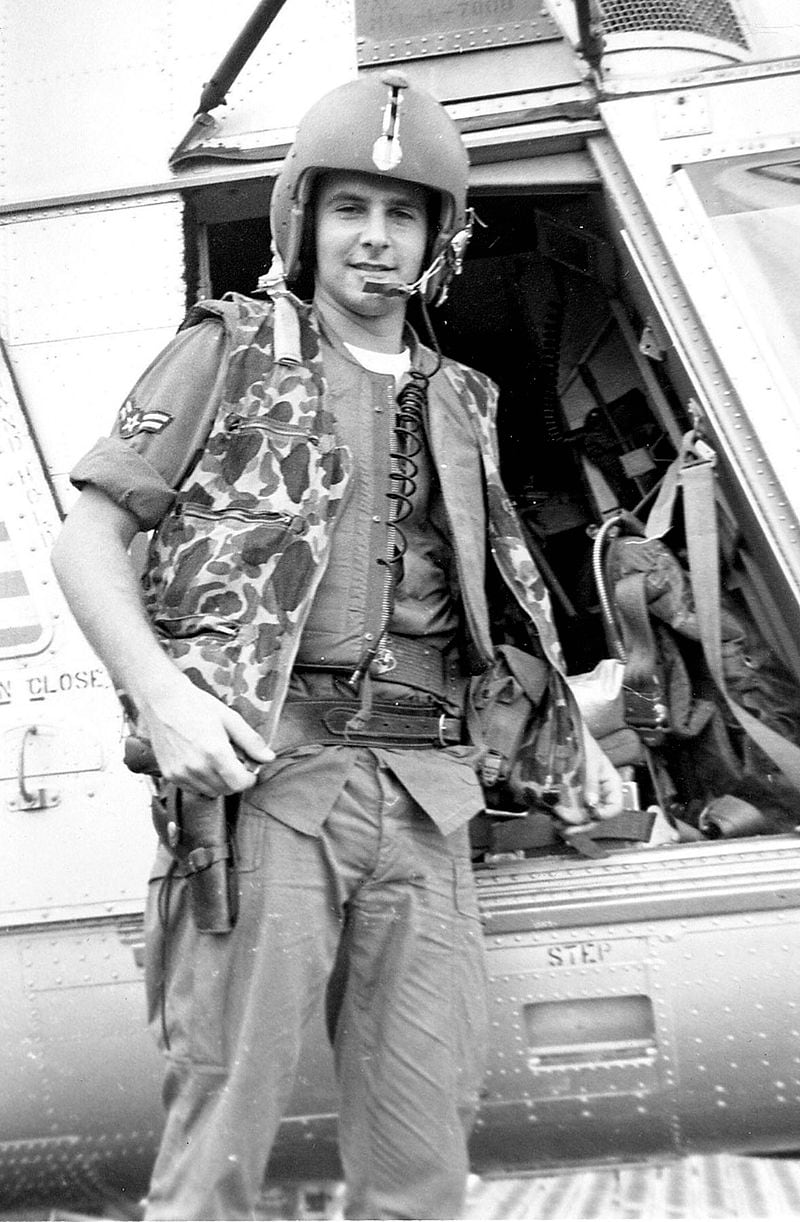A call for a medevac went out on April 11, 1966, after soldiers from the Army’s 1st Infantry Division positioned near Cam My, Republic of Vietnam, began taking extreme casualties during a lengthy firefight.
Airman First Class William H. Pitsenbarger, a Pararescue crew member assigned to the 38th Aerospace Rescue and Recovery Squadron, was dispatched with a team to evacuate the wounded soldiers.
As the helo approached the combat zone, Pitsenbarger, sensing the urgency of the situation, volunteered to ride the rescue hoist from over 100 feet in the air to the jungle floor, where he immediately began rendering aid to the wounded and preparing casualties for evacuation.

Despite recovering nine casualties, ”Pits,” as his friends called him, repeatedly refused to leave the ground, insisting on trying to get even more wounded to safety.
Another helo eventually arrived on scene to take more wounded, but as it approached, the assault by the Viet Cong intensified, forcing the helicopter to evacuate. Instead of leaving with the helicopter, Pits waved the pilots off to tend to the beat-up Americans on the ground who were being battered by sniper and mortar fire.
On the ground with the other men, Pitsenbarger took up arms and fought back the Viet Cong for an hour and a half while repeatedly exposing himself to heavy enemy fire to make improvised splints and stretchers out of surrounding vegetation.
With ammunition running low, Pits ran to the positions of mortally wounded soldiers to collect ammunition and distribute it to those still in the fight. He was wounded three times in the process.
Ignoring his wounds, he continued to repel the attack and treat wounded soldiers up until the point the American perimeter was finally breached.
He was mortally wounded by a sniper when the line was overrun. In the end, the Americans on the ground suffered 80 percent casualties.
Pits was clutching a med kit in one hand and a rifle in the other when his body was recovered.
For ignoring his own safety and remaining behind to treat and evacuate as many wounded as possible, Pitsenbarger was posthumously awarded the Air Force Cross, which was later upgraded to the Medal of Honor.
The Piqua, Ohio, native was 21 years old when he was killed.
Read Pitsenbarger’s full citation here.
RELATED

J.D. Simkins is the executive editor of Military Times and Defense News, and a Marine Corps veteran of the Iraq War.





